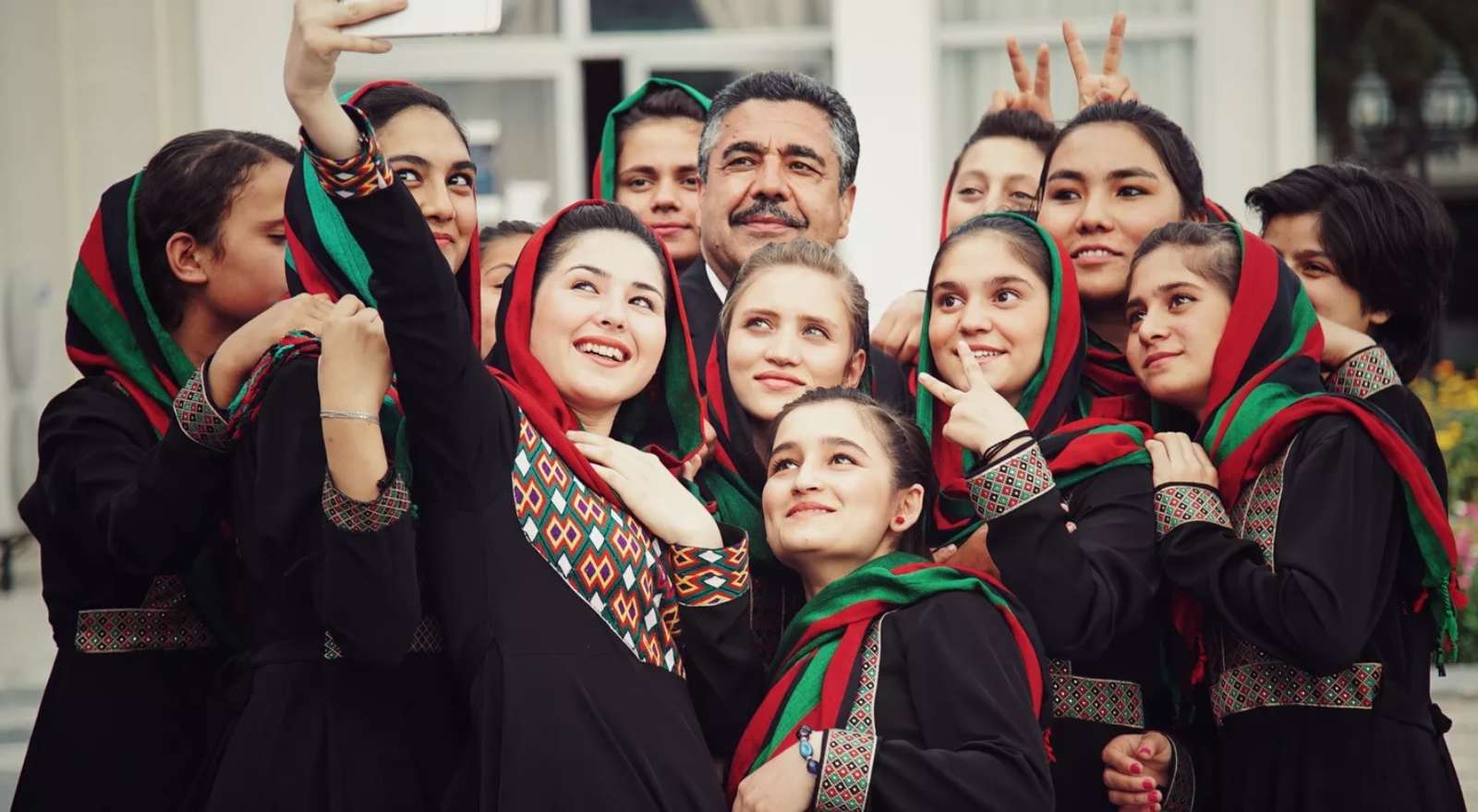Can music change the world? You could do much worse than look at the heartwarming impact of Zohra, an all-female orchestra from Afghanistan that is changing how people in the country — and abroad — view women and Afghani culture.
Zohra Orchestra is a group of more than 30 young girls, ranging from 12 to 20 years of age. Many are orphans or from poor families, and they play a mix of classical and western songs using instruments including the cello, sarod, violin, and traditional percussion.
This would be impressive enough, were it not for the fact that the orchestra was set up in Afghanistan — a country in which music, until recently, was completely banned. Under the Taliban regime, entire generations of musicians fled the country. There is no national orchestra or state opera, and death threats for musicians are common.
The lingering effect of Taliban rule is a society that is highly suspicious — or outrightly intolerant — of music. So much so that when Negin Khpalwak, one of Zohra’s two celebrated female conductors, told her family that she wanted to study music, her uncles threatened to kill her. They believed her studies would shame the family—that girls should not be allowed to attend school, let alone practice music.

Credit: Zohra
Thankfully, she and others have found a lifeline in ANIM, the Afghanistan National Institute of Music — the birthplace of Zohra, which was created in 2015.
“We do not train our students to be perfect musicians, but to be people who value and use music as a force for social change,” explained Ahmad Sarmast, the founder of ANIM. A musician and the son of heralded Afghan composer Selim Sarmast, he himself fled into exile in Australia until 2008, when he returned to Afghanistan’s capital Kabul to set up the school.
He also knows first-hand how dangerous a career in music can be. As he explained to German newspaper Sueddeutsche Zeitung, he was playing at a school concert in 2011 when a young man blew himself up. Sarmast was seriously injured in the blast.
“Afghanistan needs more than anything else to benefit from the healing power of music,” Sarmast added in an interview with the BBC. “Our students are living in a tough environment with a lot of pressure and concern about their security and safety, but by the end of the day it’s music which makes them very strong and gives them hope for the future and allows them to be a wonderful role model for other young Afghan girls.”
For Negin, like many others she plays with, Zohra and the relationship with ANIM has been life changing. ANIM’s choir has travelled to Turkmenistan and the UAE, and Zohra has played in the UK, Germany, Switzerland and Australia. Negin also went with the Afghan Youth Orchestra to the United States, where she became the first female Afhan sarod player to perform publicly.
Her co-conductor, Zarifa Adiba, stresses the change that Zohra is having on a personal and societal level. She was initially very concerned about the reaction back home to her performing on such a global stage — particularly when Zohra closed the World Economic Forum in Dubai. But on her return, even her uncle, who had been entirely opposed to seeing her study music, proclaimed himself proud of his baton-wielding nice.
“I changed my family. Now it is time for other girls to change their families, because I am sure that slowly all Afghanistan will change,” she said.
ANIM currently teaches 250 young people, male and female. The hope is that new centres can be opened in other cities, including Herat, Mazar-e Sharif and Jalalabad, increasing this number to 320.
